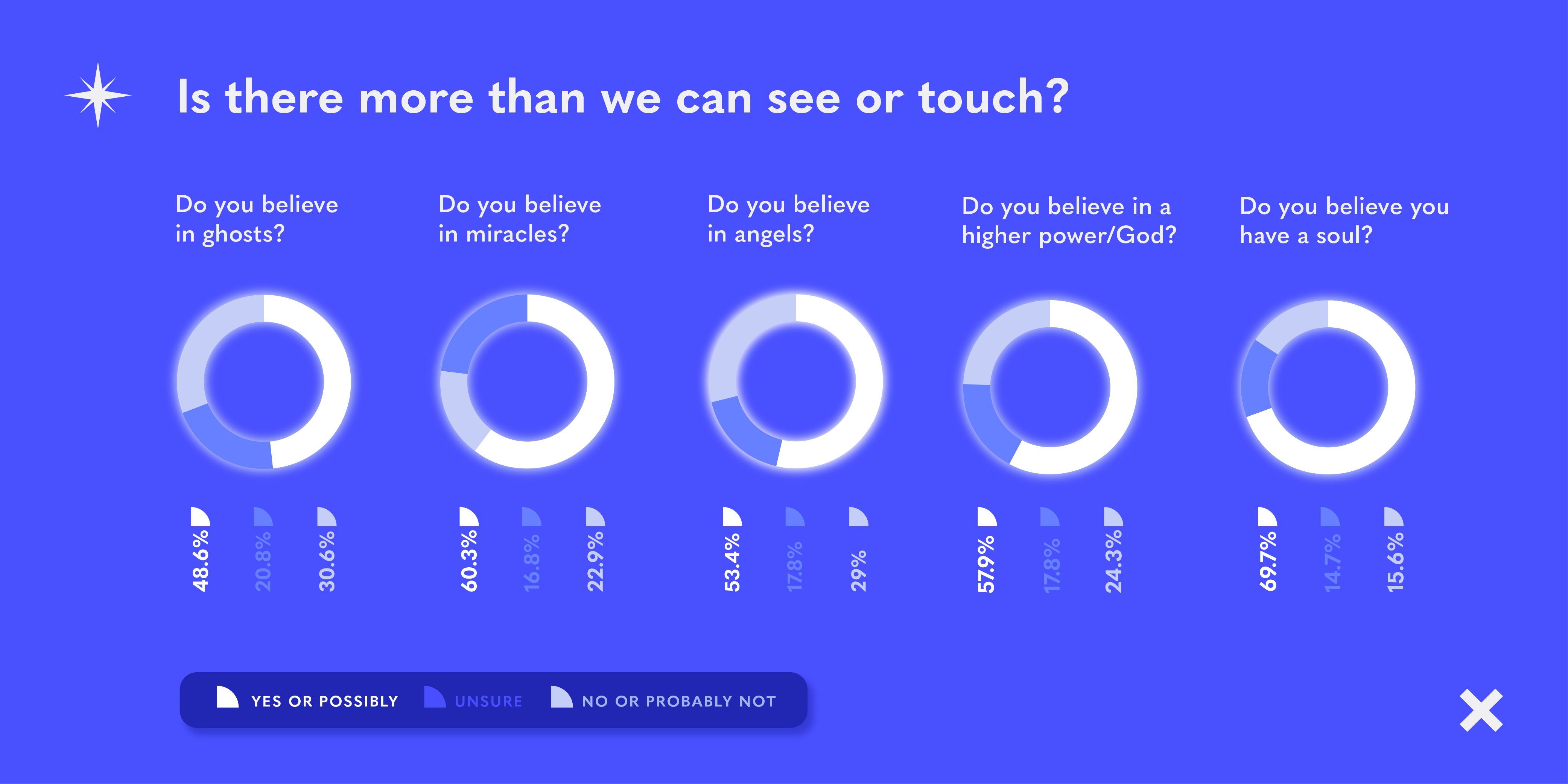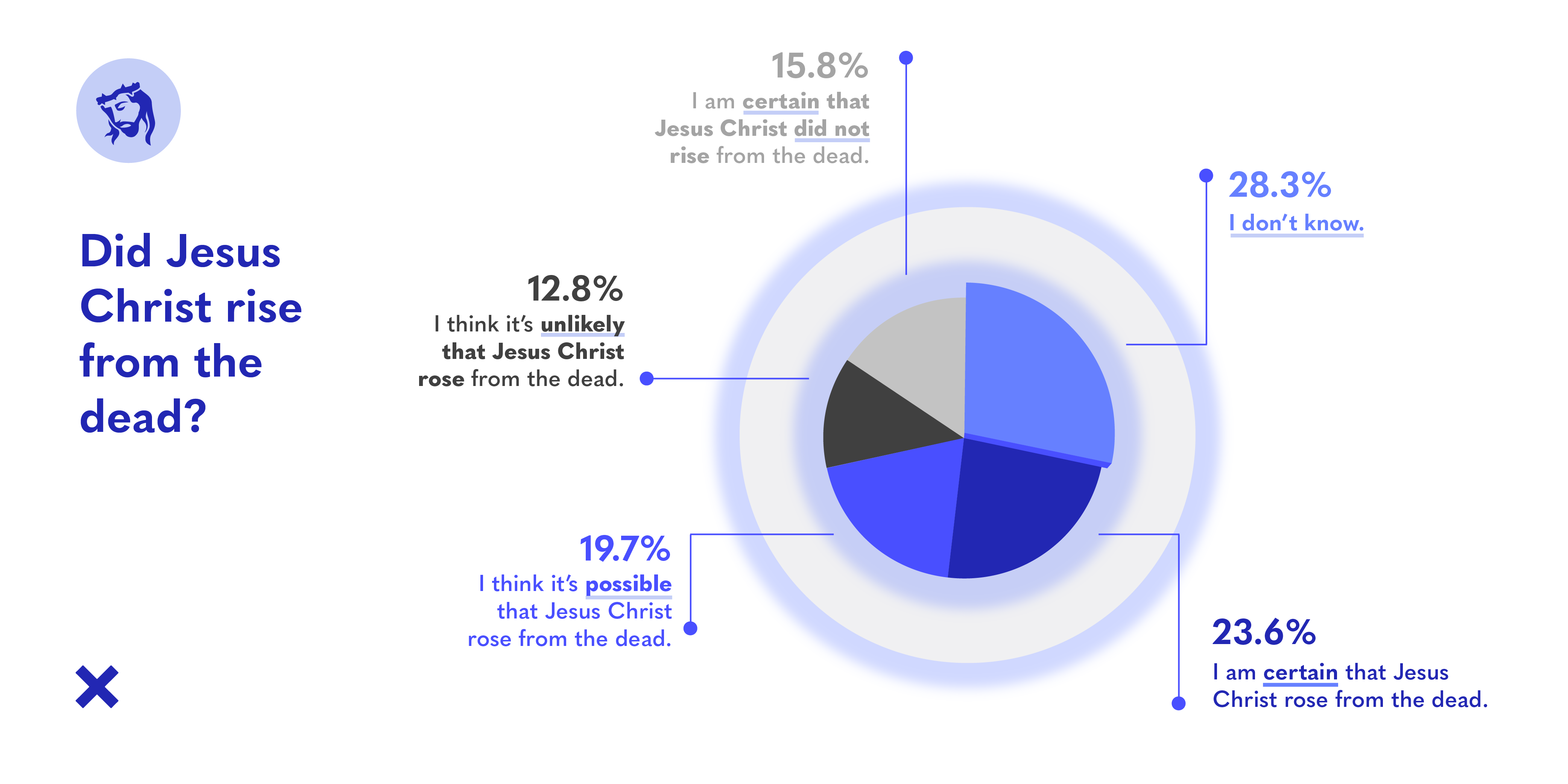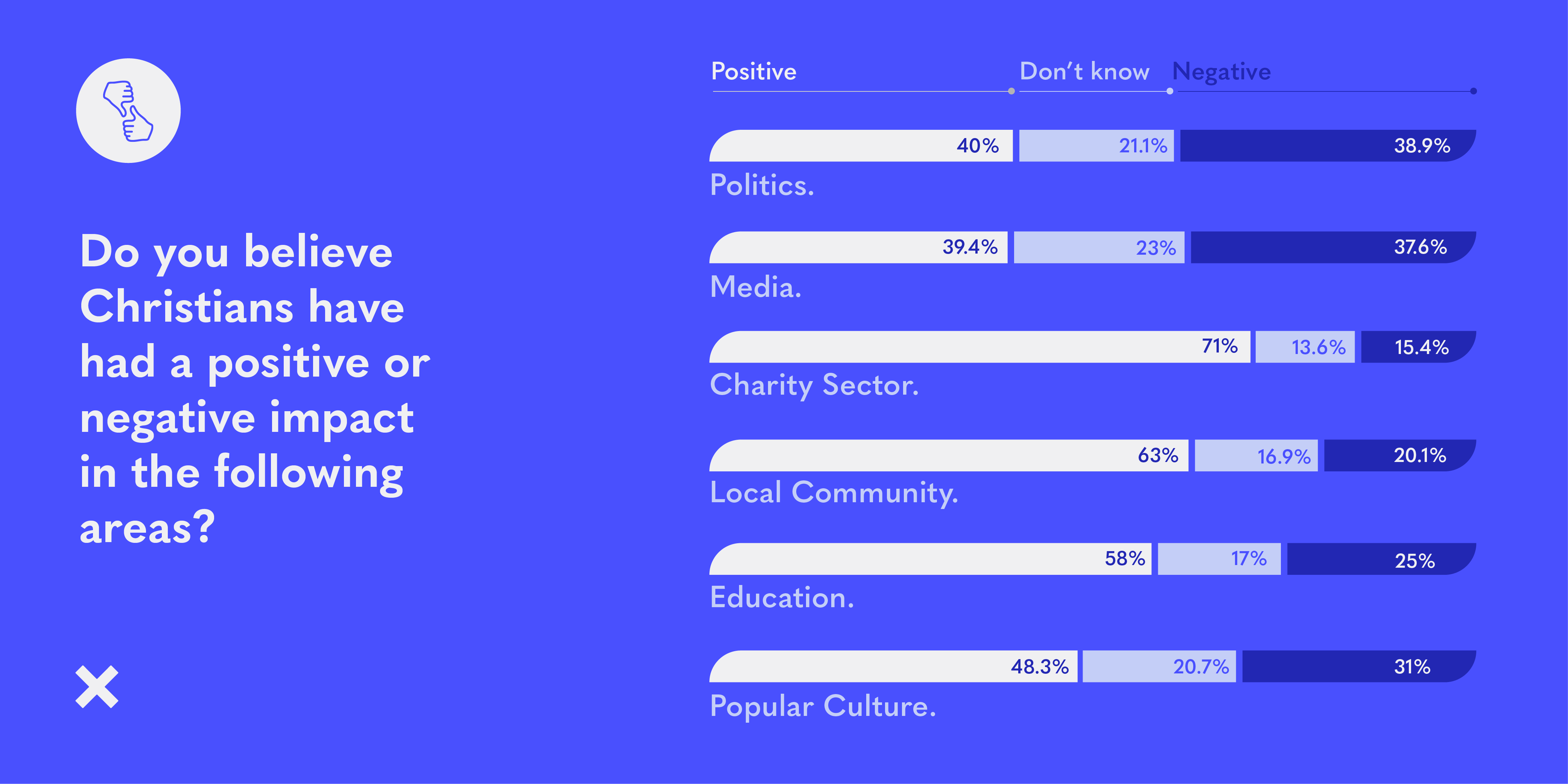In March 2021, the Centre for Public Christianity (CPX) commissioned McCrindle to conduct an online survey of 1000 Australians. The survey was nationally representative by gender, age (generation), and states and territories and was in field from 12-17 March 2021.
It asked questions across three broad areas:
Respondents were asked about their openness to the existence of a range of spiritual realities: ghosts, miracles, angels, a higher power/God, the soul, ultimate meaning or purpose in life, and life after death.
They were given the options “I believe this exists”, “I am open to the possibility that this exists”, “I am unsure if this exists”, “I think it’s unlikely that this exists”, and “I believe this does not exist”.

Asked which statement best describes their view on the central claim of the Easter story, responses were distributed across the categories “I am certain Jesus Christ rose from the dead”, “I think it’s possible that Jesus Christ rose from the dead”, “I don’t know”, “I think it’s unlikely that Jesus Christ rose from the dead”, and “I am certain Jesus Christ did not rise from the dead”.

A third question asked whether Christians have had a positive or a negative impact in the following areas: politics, media, charity sector, local community, global community, workplace, education, and popular culture. The responses ranged from “very positive” or “somewhat positive” to “somewhat negative” or “very negative”, as well as “I don’t know”.

Overall, the results suggest that Australians are perhaps surprisingly open to spiritual realities – in particular, the soul, meaning, and life after death, and especially among the younger age brackets.
When it comes to the resurrection, the most common response was “I don’t know”, with the number of people declaring it certain or possible significantly higher than those who thought it unlikely, or certain not to have happened.
And perceptions of the impact of Christians on society leaned more positive than negative on the whole, but with significant differences across spheres of influence: the strongest perceptions of positive influence were related to the charity sector (70% somewhat or very positive) and education (57% positivity), and the strongest negative perceptions were associated with politics (39% somewhat or very negative) and the media (37% negativity).
The above graphs and below links capture some of the results and their implications.
For more information or for media interviews, contact CPX at info@publicchristianity.org
CPX Media Release, 26 March 2021